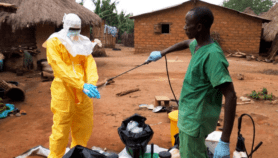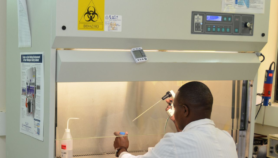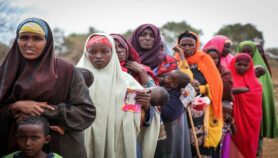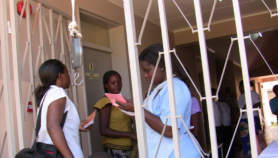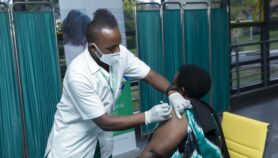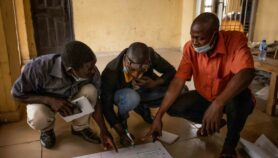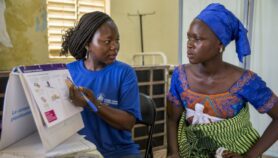26/11/20
COVID-19 control measures choking rural, slum dwellers
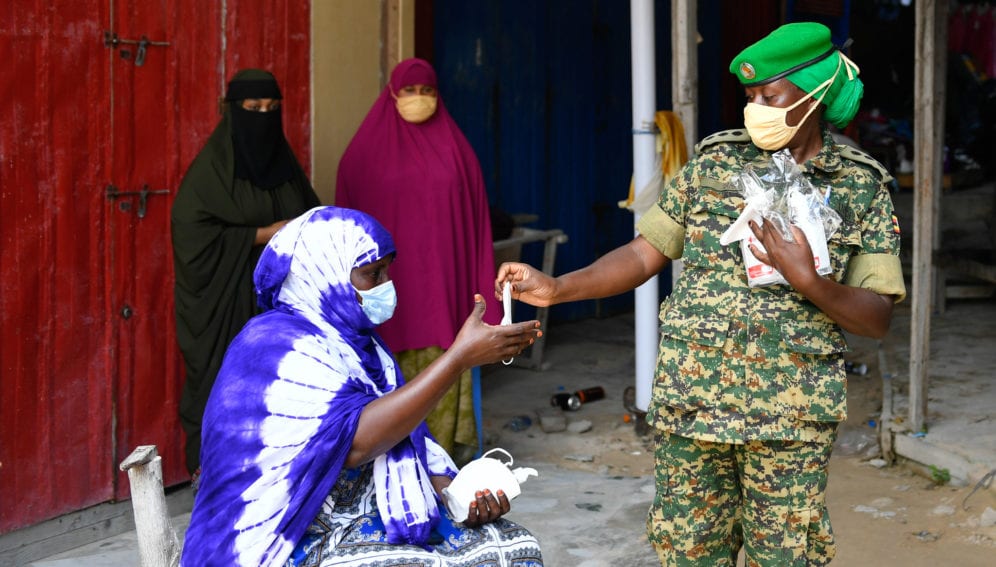
By: Ben Ahenda
Send to a friend
The details you provide on this page will not be used to send unsolicited email, and will not be sold to a 3rd party. See privacy policy.
[NAIROBI] Measures implemented by governments to control the spread of COVID-19 are hurting rural communities and the urban poor in low- and middle-income countries, making the need to mitigate their impacts urgent, researchers say.
According to researchers, lockdowns are deepening economic hardships and existing inadequate healthcare among rural and slum dwellers.
In Kenya, a household survey of 100 rural households showed that COVID-19 control measures led to 96 per cent of rural residents losing incomes.
“We believe the effects are likely to be felt by people for some time. In other Sub-Saharan African countries, effects may be similar in countries where similar control measures were imposed,” says Janneke van Oirschot, a research officer at the Netherlands-based Health Action International, which conducted the survey.
“COVID-19 containment measures will only make [economic hardships and inadequate healthcare] worse unless action is taken to mitigate their impacts.”
Janneke van Oirschot, Health Action International
“COVID-19 containment measures will only make [economic hardships and inadequate healthcare] worse unless action is taken to mitigate their impacts,” van Oirschot says, adding that safety measures need to consider economic development and management of other health conditions, improvement of the health systems and provision of universal health coverage to all citizens.
Analysis of the survey results, published last month, shows that the leading causes of household income loss included job losses, loss of business, sales or work activities and delayed or reduced salaries. Nine per cent said market or business closures impacted their incomes.
In another study that was conducted in slum communities of Bangladesh, Kenya, Nigeria and Pakistan researchers say that measures put in place to contain the spread of COVID-19 could worsen existing health inequalities in their slum communities.
Frances Griffiths, the study’s co-author and a professor at the UK-based Warwick Medical School, tells SciDev.Net that slum dwellers were already disadvantaged by unreliable water supply, poor provision of toilets and makeshift housing in the slum communities and there is a danger of them being deprived further by COVID-19 control restrictions.
As COVID-19-related lockdowns were imposed in each of the study countries, researchers engaged with 860 community leaders to assess the impact of COVID-19 measures on slum dwellers.
“Although there were some cases of COVID-19 infections, what affected everyone living in the slum was the response to COVID-19 including lockdowns,” says Griffiths. “Many slum residents get work by the day and as they could not travel to get work, they could not buy food.”
“Around 80–85 per cent of the residents are stuck inside the slum with no work or mode of income so poverty is becoming the main problem,” adds a pharmacist from Bangladesh cited in the study. “Therefore, people are more at risk of dying of hunger and poverty at this point than the disease outbreak.”
According to Griffiths, those who fall sick are unable to venture out to seek healthcare at formal public health systems such as hospitals, which are mostly outside the slums. Instead, they resort to, among others, home remedies, medicine vendors and traditional healers due to the disruption in health services.
The research says that adopting mobile consulting and upskilling local providers could be an effective means in providing access to healthcare services for slum dwellers.
Githinji Gitahi, group chief executive officer, Amref Health Africa, says that although African countries are opening up to revive their economies, the COVID-19 pandemic is posing significant threats to the incomes and livelihoods of millions globally, especially poor, vulnerable and marginalised households.
“For informal workers who venture out each day to make a living, the pandemic meant a reduced household income at a time when the cost of healthcare was increasing,” Gitahi tells SciDev.Net. “This is a time for health policymakers to look at the pandemic through several lenses that capture its impact on health, education, economic opportunities and social wellbeing.”
This piece was produced by SciDev.Net’s Sub-Saharan Africa English desk.
References
- Health Action International Impact and knowledge of COVID-19 and related measures in rural Kenyan households (15 October, 2020)
- Syed A K Shifat Ahmed and others Impact of the societal response to COVID-19 on access to healthcare for non-COVID-19 health issues in slum communities of Bangladesh, Kenya, Nigeria and Pakistan: results of pre-COVID and COVID-19 lockdown stakeholder engagements (BMJ Global Health, 20 August 2020))


